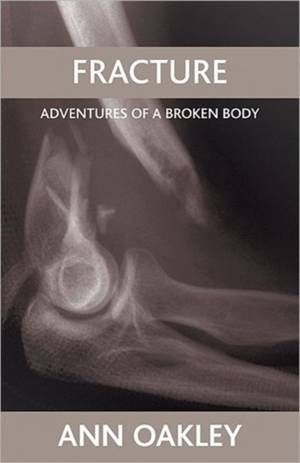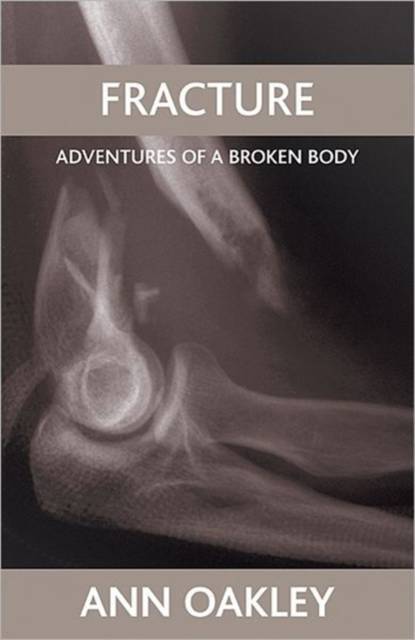
- Afhalen na 1 uur in een winkel met voorraad
- Gratis thuislevering in België vanaf € 30
- Ruim aanbod met 7 miljoen producten
- Afhalen na 1 uur in een winkel met voorraad
- Gratis thuislevering in België vanaf € 30
- Ruim aanbod met 7 miljoen producten
Omschrijving
The starting point of Ann Oakley's fascinating book is the fracture of her right arm in the grounds of a hotel in the USA. What begins as an accident becomes a journey into some critical themes of modern Western culture: the crisis of embodiment and the perfect self; the confusion between body and identity; the commodification of bodies and body parts; the intrusive surveillance and profiteering of medicine and the law; the problem of ageing; and the identification of women, particularly, with bodies - from the intensely ambiguous two-in-one state of pregnancy to women's later transformation into unproductive, brittle skeletons.
"Fracture" mixes personal experience (the author's and other people's) with 'facts' derived from other literatures, including the history of medicine, neurology, the sociology of health and illness, philosophy, and legal discourses on the right to life and people as victims of a greedy litigation system. The book's genre spans fiction/non-fiction, autobiography and social theory.
Specificaties
Betrokkenen
- Auteur(s):
- Uitgeverij:
Inhoud
- Aantal bladzijden:
- 192
- Taal:
- Engels
Eigenschappen
- Productcode (EAN):
- 9781861349378
- Verschijningsdatum:
- 25/04/2007
- Uitvoering:
- Paperback
- Formaat:
- Trade paperback (VS)
- Afmetingen:
- 130 mm x 196 mm
- Gewicht:
- 204 g

Alleen bij Standaard Boekhandel
Beoordelingen
We publiceren alleen reviews die voldoen aan de voorwaarden voor reviews. Bekijk onze voorwaarden voor reviews.








